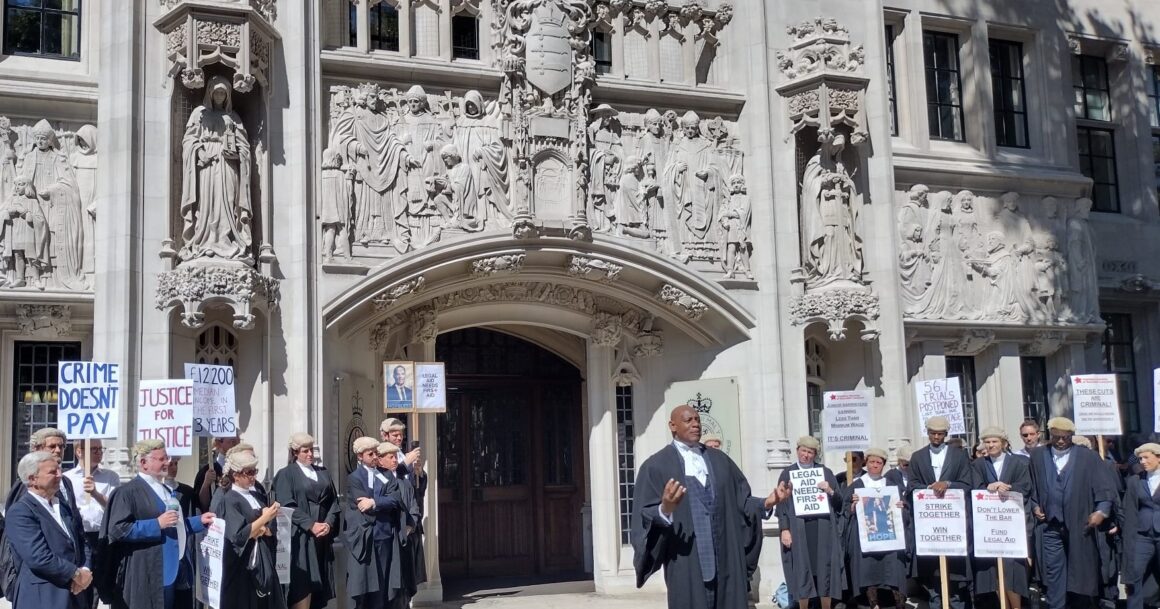

By Alex Rutherford
Criminal Barristers are escalating their action to an all-out strike, endorsed by nearly 80% of their members. This is a major step up for the Criminal Bar Association (CBA) and a model for unions to follow in their struggles.
Workers Power spoke to Saul Brody, a criminal barrister on strike in Manchester, about the reasons for the strike.
‘The strike is a result of chronic underfunding—the criminal justice system has faced a 28% decrease in funding over the last 10 years. Junior barristers are suffering the most. In the first five years the average salary of a criminal barrister is only £12,000, below the minimum wage. We have lost 300–400 junior counsel in the last year alone.
‘The situation is creating chaos in the courts. Trials starting in 2018 are still yet to be resolved. It isn’t getting better, it’s getting worse. Many witnesses and victims are called into court multiple times and eventually refuse to come back. The government likes that, because it leads to abandoned prosecutions which relieves pressure on the system without the public being aware. This applies particularly to rape cases, in which victims are regularly dropping out due to issues with the system.
‘Underfunding also poses a threat in terms of diversity. This impacts oppressed minorities who lack the opportunity to take the gamble on trying to become a criminal barrister. This leads inevitably to a profession full of white, male, middle class people. Criminal law can’t be just a rich man’s hobby—we need to have criminal barristers from different backgrounds. Many people are going into commercial work due to the highly increased fees available.’
The CBA is holding out for a 25% increase in barristers’ pay for all existing and future cases after a 28% erosion over the past decade. Currently, the government is offering a 15% increase, but only for new cases.
‘This would mean that no one would want to touch old cases—the pay rise needs to apply to all cases from this point forward.’
The cuts to legal aid don’t just affect barristers’ pay. The types of cases legal aid is available for has been cut, forcing those who need access to the justice system either to pay exorbitant legal costs or to rely on funding agreements which bloat the profits of large law firms by taking deductions from any compensation awarded.
Organise
Workers across the legal sector—underpaid paralegals and junior solicitors —should look to the barristers’ strike as inspiration to unionise. Indeed all workers should support the criminal barristers both in solidarity with the strikers and against the Tories’ underfunding of the legal system. This fight is about more than just barristers’ wages—it is a response to the inequality inherent in the capitalists’ justice system, which has always defended property rights, not human rights.